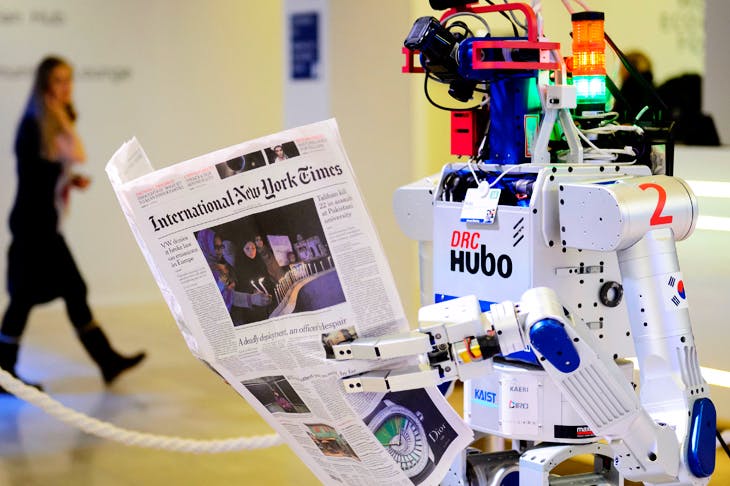It’s not just a headwind; there’s a gale coming. The ‘global headwinds’ blamed by the Turnbull government for last week’s rise in Australia’s unemployment rate to December’s six-month high of 5.8 per cent, are as nothing compared to the gale-force job-destruction now on the way via the world-wide technology-based ‘fourth industrial revolution’ led by incredible advances in Artificial Intelligence. As in previous industrial revolutions, there will be winners and losers; some human intelligence is needed to ensure Australia does not end up a loser.
‘Jobs and Growth’ is already in trouble after 2016’s job growth collapsed to less than half the rate of the previous two years and failed to provide enough jobs for the growing workforce. Worse, these 92,000 new jobs were all for part-timers, who now make up almost one third of employed Australians. Full-time jobs fell during the year by a worrying 35,000 and, with public-sector job vacancies rising in 2016 at a rate 2½ times greater than a sluggish private sector, one commentator noted, ‘This isn’t a labour market that’s going to generate above-trend GDP and wealth’ and another warned that ‘unemployment is now on track to rise back above 6.0 per cent as workers are laid off after a housing and construction boom’.
So Australia already has to cope with its own problems as it faces the era of AI attack on the labour market. The 2016 ‘global headwinds’ were mainly due to uncertainty surrounding the US election (with the prospect of a protectionist reversal of US free-trade policy), Brexit and other EU problems, China’s economic slowdown, Middle East chaos all compounded by a local Senate that severely limits the government’s capacity to implement much-needed fiscal measures – like lower corporate tax rates. These uncertainties continue. They are now being joined by the growing recognition of the consequences of the current technology revolution that this month spooked those world business and political leaders attending what is generally little more than a yearly self-important networking event in Davos, Switzerland. This year, Davos faced up to the prospect of ‘serious social unrest’ as advances in AI are already rapidly consuming jobs, bringing widespread disruption to the workplace and widening the inequality gap. In calling for a socially responsible corporate response, one business leader noted ‘Public disquiet about technological change (and globalisation) has already sparked a populist political backlash in Western democracies, leading to protectionism and a new nationalism in countries previously open to free trade and free borders…People are asking whether new technology is the road to a better future for all or only for the few who are orchestrating this reshaping of a world where the top one per cent already own more than 50 per cent of world’s wealth’. And in a barb aimed at President Trump, one quipped: ‘Amazon is going to kill more American jobs than China did. It has revolutionised the way Americans consume, bringing lower prices and unimaginable convenience. So for retail workers (and shopping malls) Amazon is a grave threat to the three quarters of American retail jobs that face AI competition’.
The World Bank estimates that AI is a threat to 57 per cent of jobs in the 35 OECD nations, and a Manpower survey for Davos found that ‘up to 45 per cent of tasks done daily in the workplace could already be automated using current technology. McKinsey reported that more than 60 per cent of jobs and 30 per cent of business activity could be automated today. ‘Business will have to re-skill. Back-office labour in banking, insurance and other financial services is most at risk from AI. Even professions like medicine and accountancy could face upheavals as AI evolves’. The lament from one Davos boss was that: ‘White collar workers are now under threat from AI after industrial robots (and international trade) put paid to many industrial jobs in the Western world. We face the prospect of leaving a larger part of humanity behind than in any other industrial advance’. This underlines the political threat posed by such technological change. Beware the potential for conflict between the few possessors of the economic power and the disgruntled many with the political power of the vote. Democracy may be at serious risk.
Got something to add? Join the discussion and comment below.
Get 10 issues for just $10
Subscribe to The Spectator Australia today for the next 10 magazine issues, plus full online access, for just $10.














Comments
Don't miss out
Join the conversation with other Spectator Australia readers. Subscribe to leave a comment.
SUBSCRIBEAlready a subscriber? Log in